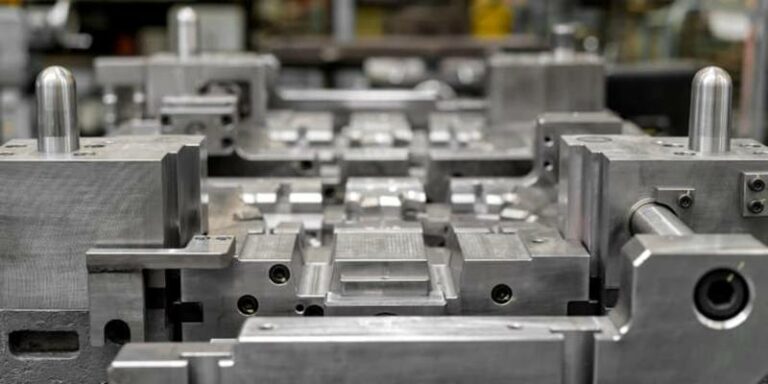Not known Facts About Alcast Company
Table of ContentsNot known Factual Statements About Alcast Company The Best Guide To Alcast CompanyThe 7-Second Trick For Alcast CompanyOur Alcast Company PDFsNot known Facts About Alcast CompanyNot known Facts About Alcast Company
The subtle distinction hinges on the chemical content. Chemical Comparison of Cast Light weight aluminum Alloys Silicon advertises castability by minimizing the alloy's melting temperature and improving fluidity during casting. It plays a crucial role in permitting intricate molds to be filled up precisely. In addition, silicon contributes to the alloy's strength and wear resistance, making it beneficial in applications where toughness is essential, such as automobile parts and engine parts.It additionally improves the machinability of the alloy, making it easier to refine right into ended up products. In this way, iron contributes to the total workability of light weight aluminum alloys.
Manganese adds to the stamina of light weight aluminum alloys and improves workability. Magnesium is a lightweight component that offers strength and influence resistance to aluminum alloys.
Top Guidelines Of Alcast Company
Zinc enhances the castability of light weight aluminum alloys and aids regulate the solidification procedure during casting. It enhances the alloy's stamina and solidity.

The primary thermal conductivity, tensile toughness, yield strength, and prolongation vary. Select suitable basic materials according to the efficiency of the target item generated. Amongst the above alloys, A356 has the highest thermal conductivity, and A380 and ADC12 have the most affordable. The tensile limitation is the opposite. A360 has the very best yield toughness and the highest elongation rate.
The Greatest Guide To Alcast Company

In precision spreading, 6063 is well-suited for applications where complex geometries and premium surface coatings are extremely important. Examples include telecommunication rooms, where the alloy's exceptional formability permits streamlined and cosmetically pleasing layouts while preserving architectural honesty. In the Illumination Solutions market, precision-cast 6063 parts create stylish and effective lights fixtures that require intricate shapes and excellent thermal efficiency.
It leads to a finer surface area coating and far better rust resistance in A360. Moreover, the A360 shows premium elongation, making it perfect for facility and thin-walled components. In precision spreading applications, A360 is appropriate for sectors such as Customer Electronics, Telecommunication, and Power Devices. Its boosted fluidity enables complex, high-precision elements like smart device housings and interaction tool real estates.
The 6-Second Trick For Alcast Company
Its distinct homes make A360 an important selection for precision casting in these sectors, Find Out More improving item sturdiness and top quality. Light weight aluminum alloy 380, or A380, is an extensively used spreading alloy with a number of unique features. It supplies excellent castability, making it an excellent choice for precision spreading. A380 exhibits good fluidness when molten, making sure intricate and comprehensive mold and mildews are accurately duplicated.
In accuracy spreading, light weight aluminum 413 shines in the Customer Electronic Devices and Power Equipment industries. This alloy's premium rust resistance makes it an exceptional option for outdoor applications, making certain lasting, durable items in the discussed industries.
The Best Strategy To Use For Alcast Company
The aluminum alloy you choose will significantly influence both the casting procedure and the properties of the last item. Because of this, you need to make your choice carefully and take an enlightened strategy.
Identifying the most ideal light weight aluminum alloy for your application will indicate evaluating a large selection of features. These relative alloy qualities comply with the North American Pass Away Spreading Association's guidelines, and we've divided them into two classifications. The very first classification addresses alloy features that affect the manufacturing procedure. The 2nd covers characteristics affecting the buildings of the end product.
Our Alcast Company Ideas
The alloy you select for die spreading directly influences a number of aspects of the spreading process, like just how simple the alloy is to function with and if it is susceptible to casting defects. Warm breaking, also called solidification splitting, is a common die spreading defect for aluminum alloys that can cause internal or surface-level rips or fractures.
Particular aluminum alloys are a lot more prone to warm splitting than others, and your selection must consider this. Another usual defect discovered in the die spreading of aluminum is pass away soldering, which is when the actors sticks to the die wall surfaces and makes ejection hard. It can damage both the actors and the die, so you should seek alloys with high anti-soldering residential or commercial properties.
Deterioration resistance, which is currently a significant feature of light weight aluminum, can differ considerably from alloy to alloy and is a necessary particular to take into consideration depending upon the ecological problems your product will certainly be revealed to (Aluminum Casting). Use resistance is one more residential or commercial property frequently sought in aluminum products and can differentiate some alloys